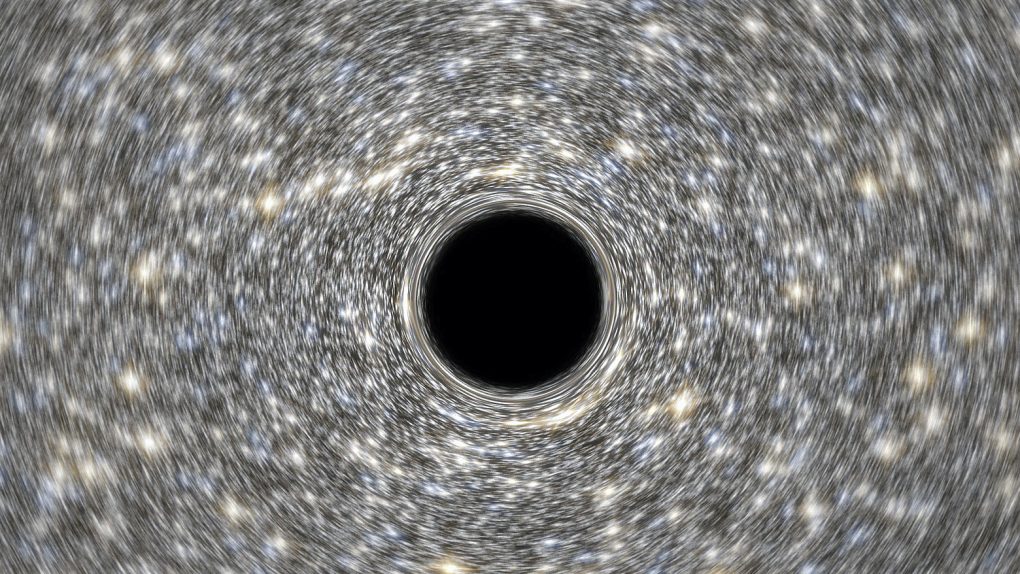- Astronomers have rediscovered the heartbeat of a black hole that was first detected back in 2007.
- The pulsing wave of energy is thought to be the result of the black hole swallowing up surrounding material, but its steady beat is extremely unusual.
- The black hole’s heart “beats” once every hour, and has for at least the past decade, according to the researchers.
The first-ever recorded “heartbeat” of a black hole was detected way back in 2007. At the time, it was something of an anomaly; A pulsing wave of energy radiating out from the assumed location of a black hole at regular intervals. It was regularly observed through 2011, but that’s when things got complicated.
The satellite hardware that was observing the black hole could no longer detect it due to interference from the Sun. The signal was blocked, and astronomers waited seven long years before the line of sight was restored and new measurements could be taken. Remarkably, it’s still there, and it’s still beating at the same regular intervals.
Black holes feed on whatever matter happens to be close by. It’s just what they do. They suck in everything, including light, but they can still radiate energy into space, and they tend to do that as they’re swallowing things up.
It’s believed that all or at least most black holes are surrounded by a ring of material known as an accretion disk. This disk is made up of dust, gas, and even bits and pieces of large objects like planets that have been torn apart by the black hole. This is typical behavior, but it’s incredibly rare to see energy pulsing from a black hole at such a steady and predictable rate. The research was published in Monthly Notices of the Royal Astronomical Society.
“The only other system we know which seems to do the same thing is a 100,000 times smaller stellar-mass black hole in our Milky Way, fed by a binary companion star, with correspondingly smaller luminosities and timescales,” Professor Chris Done, a participant in the research, said in a statement. “This shows us that simple scalings with black hole mass work even for the rarest types of behavior.”
Despite being able to observe the heartbeat over the course of several years, the mechanisms at work remain a mystery. We know that when a black hole swallows up a large chunk of material it can produce a blast of energy, but this decade-long pulsing beat is truly unusual.
“This heartbeat is amazing!” Dr. Chichuan Jin, the lead author of the work, said in a statement. “It proves that such signals arising from a supermassive black hole can be very strong and persistent. It also provides the best opportunity for scientists to further investigate the nature and origin of this heartbeat signal.”








